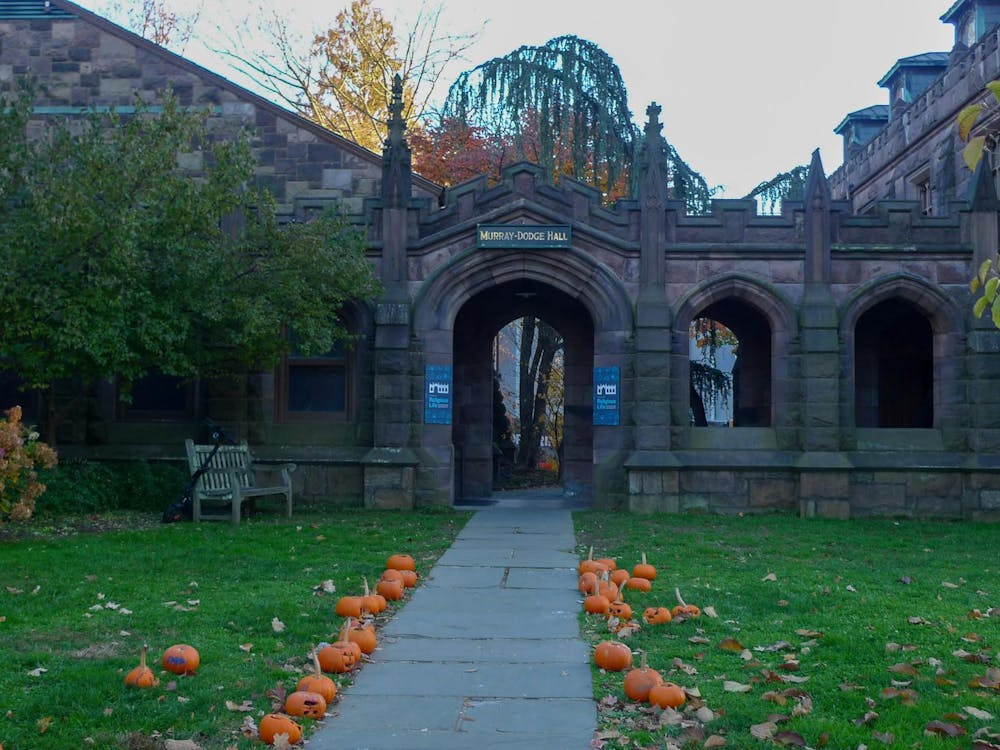The winners of USG run-off elections for class office were announced yesterday afternoon with a voter turnout much higher than expected.
Incumbents Catherine Farmer '03, Beau Harbour '05 and Surabhi Saraswat '05 each retained their positions of Class of 2003 president and Class of 2005 president and secretary, respectively.
In the election for senior class president, Farmer defeated Clark Webb '03, who was class president during his freshman year. The voter turnout for the election was 56 percent.
In the election for sophomore class president, Harbour defeated Kyle Detwiler '05, in their second consecutive run-off race for the position. Saraswat won secretary over Michelle Leutzinger '05, who is a 'Prince' staff writer.
"I think either candidate would have been a good class president, but I am very excited that I was chosen," Farmer said.
As president, she plans to follow through on her campaign promises by trying to institute a second Senior Week for after theses are completed and organizing more class events like ice cream and movie nights — and possibly pub nights.
Farmer also plans to hold mini-classes or seminars on such practical topics as how to get an apartment and repairing a car.
"Princeton tries to prepare us a lot for life after college, but there are a lot of real life things that we may not learn," she said.
Harbour said he was not surprised by the closeness of this year's presidential race, which mirrors last year's competition.
"I really cherished my experience this year and I'm really excited about having another chance to serve with the same officers from this year," he said.
"For next year, I want to continue a lot of the undertakings that we're just getting the ball rolling on this year," he explained. These include a mentoring program that will involve the parent and grandparent classes as well as recent alumni.
There was a great increase in voter turnout as 61 percent of the Class of 2005 voted in the election for class president this year.

"The turnout was a lot higher than usual, which is really encouraging," said Michael Kimberly '03, who chairs the USG elections committee. "The responses for a run-off are typically 30 to 40 percent."
Kimberly said the increase in voter turnout may be related to sweeping elections reforms passed by the USG Senate earlier this month.
This year's election marked the first time USG permitted candidates to send out mass e-mails informing classmates of their election platforms. Candidates no longer had to send hundreds of individual copy-and-paste e-mails, allowing them to reach a larger number of constituents in a shorter amount of time.
In past elections, candidates were not permitted to campaign verbally except during the USG's authorized time period. Now, candidates are allowed to approach other students to publicize their platforms prior to the date indicated by the USG elections committee. These two changes may be responsible for greater student body participation in the elections.
Candidates are monitored closely during the entire campaigning process. The USG has implemented a new graduated point system where candidates will lose certain campaigning privilege as they accumulate more "penalty points." In the old system, the rules stated that once a candidate reached ten points she would be discussed by the election board. This usually resulted in candidates being disqualified, but later reinstated.
"It was always so easy for candidates to reach ten points," Kimberly said. "The committee always felt bad for having to disqualify someone for minor infractions so they were usually just reinstated. The new point system is much more effective because we don't feel bad about not allowing the use of the webpage."
With the new system, candidates must accrue 50 points in order to be disqualified from the race.
This year, one candidate was disqualified early in the race after submitting forms more than a day late.
The new point system is much better in that the violations and the penalties associated with them are much more comprehensive, Kimberly said.
The USG elections Committee is impressed with the increased turnout in this spring's elections and subsequent run-off elections, he said. The policy changes have made more students aware of the candidates competing for their votes and the platform each represents.







